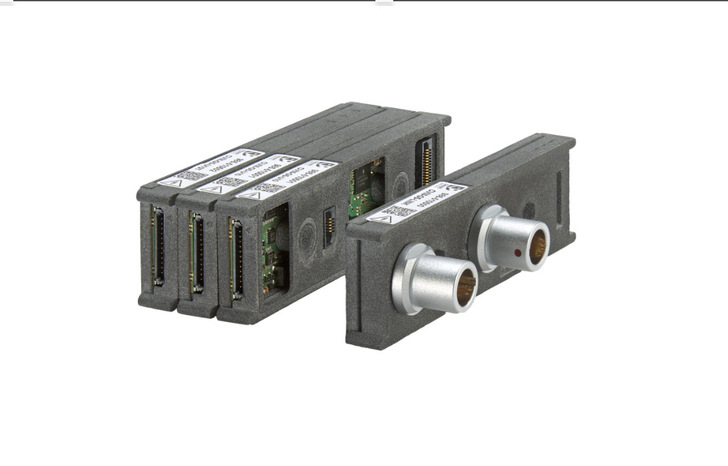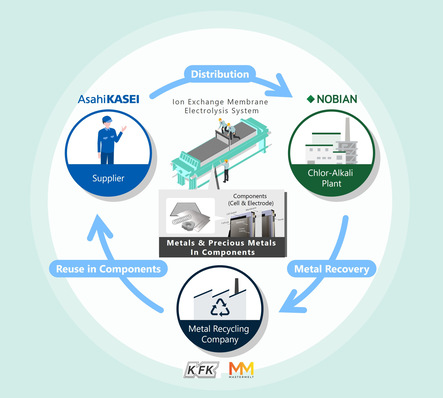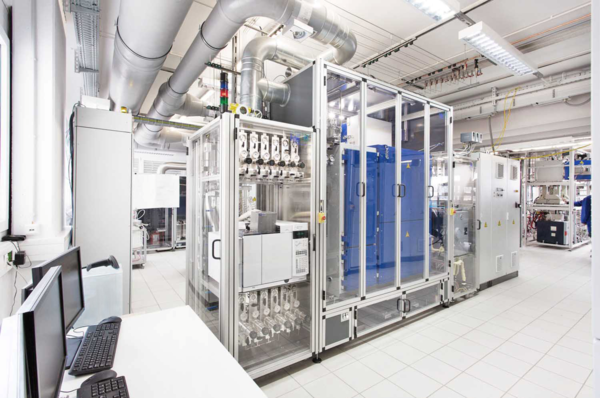The new EIS system has already been successfully integrated into a newly developed test bench for full-scale fuel cell stacks with power ratings of up to 200 kW. The test bench, developed by MS2 Engineering und Anlagenbau, has been commissioned at the Fraunhofer Institute for Solar Energy Systems (Fraunhofer ISE) in Freiburg, Germany.
Electrochemical impedance spectroscopy provides critical insights into internal processes within bipolar electrochemical systems. In the case of PEM fuel cells, for example, it can be used to determine internal cell resistance or membrane hydration levels.
The new solution features a decentralized design with compact, galvanically isolated measurement heads that are mounted directly on the fuel cell stack. "This technology not only ensures high signal fidelity and short cable paths, but also enhances safety, as no high voltages need to be routed outside the test bench's temperature chamber," the company explains.
Conventional impedance spectroscopy systems are limited to only a few channels, which makes time-synchronous measurements across fuel cell stacks with several hundred cells impossible. Smart Testsolutions' multi-channel EIS modules address this limitation and also offer comparatively low measurement costs.
"Our goal was to make high-resolution, multi-channel EIS measurements technically robust and economically viable—even under harsh environmental conditions," explains Wolfgang Neu, Managing Director of Smart Testsolutions. "The newly developed MCM U02AC modules achieve this through a combination of rugged industrial-grade hardware, modular architecture, and powerful software that simplifies both operation and data analysis."
As part of the project, Smart Testsolutions has also further developed its existing systems for monitoring cell voltages in fuel cells and electrolyzers. The CVM G5 system has been adapted and validated to monitor up to 600 cells, with a sampling rate of 1,000 measurements per second per channel. The systems operate in a temperature range from -20 to +105 °C, qualifying them for use in aerospace applications as well.
Thanks to its modular design and wide temperature tolerance, the new solution can also be adapted for use in other electrochemical systems, including batteries, electrolyzers, and redox flow batteries.
Based in Stuttgart, Germany, Smart Testsolutions provides testing solutions for automotive control units, electronic systems, and renewable energy systems such as batteries and fuel cells. The company's cell voltage monitoring solutions are used by numerous automotive OEMs and suppliers.









